Navigating The Landscape Of Mental Health: A Comprehensive Look At MAP Clinics
By admin / July 27, 2024 / No Comments / 2025
Navigating the Landscape of Mental Health: A Comprehensive Look at MAP Clinics
Related Articles: Navigating the Landscape of Mental Health: A Comprehensive Look at MAP Clinics
Introduction
With great pleasure, we will explore the intriguing topic related to Navigating the Landscape of Mental Health: A Comprehensive Look at MAP Clinics. Let’s weave interesting information and offer fresh perspectives to the readers.
Table of Content
Navigating the Landscape of Mental Health: A Comprehensive Look at MAP Clinics
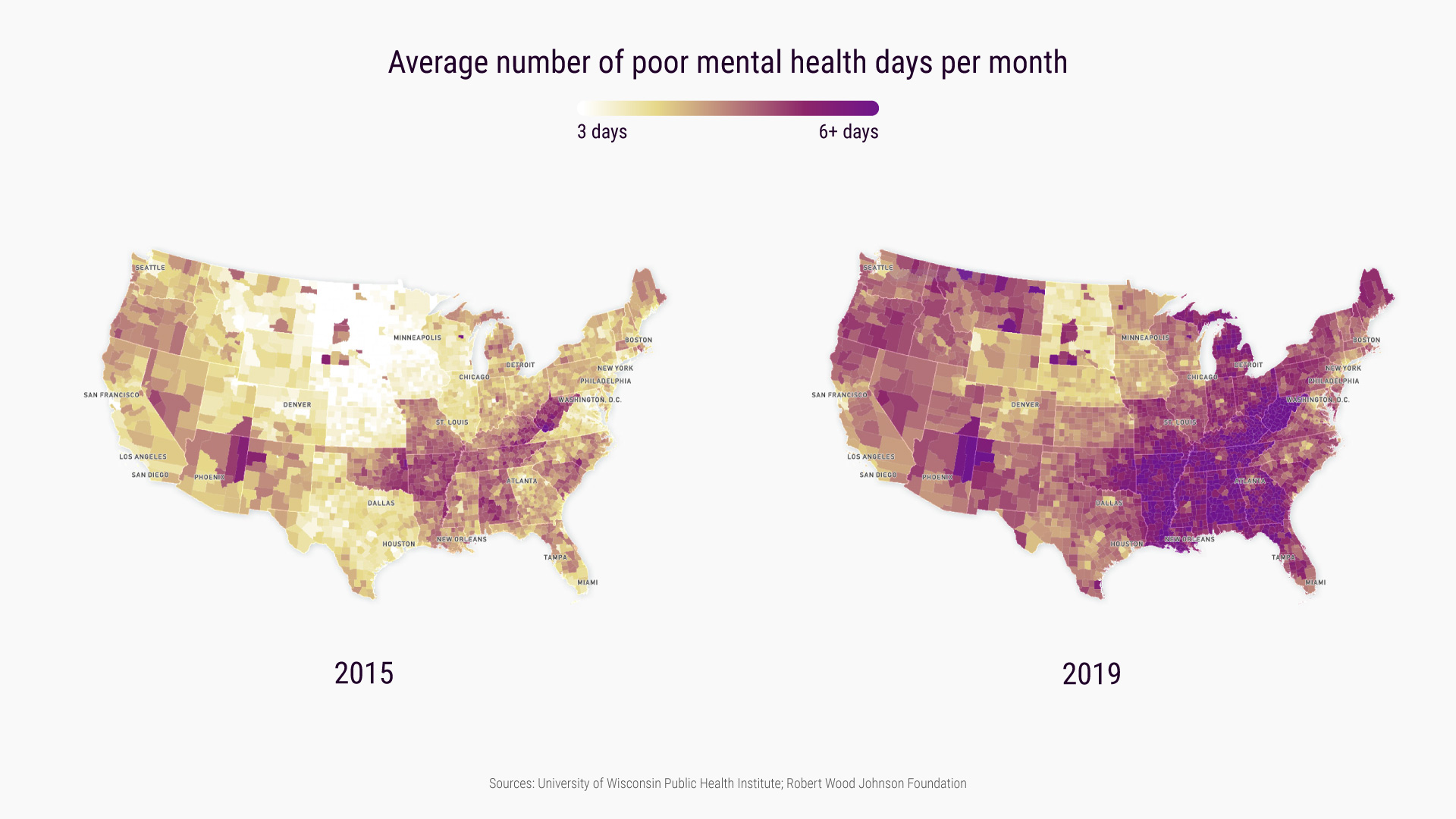
Mental health, a crucial component of overall well-being, has garnered increasing attention in recent years. As understanding of mental health conditions evolves and stigma diminishes, individuals are increasingly seeking support and treatment. In this context, specialized clinics dedicated to providing care for mental and emotional well-being, often referred to as "MAP clinics" (Mental and Addictions Programs), have emerged as vital resources for communities.
Understanding the Scope of MAP Clinics:
MAP clinics represent a diverse range of facilities offering comprehensive mental health services. They cater to a wide spectrum of individuals, from children and adolescents to adults and seniors, addressing a broad range of mental health conditions. These clinics may be independent entities or part of larger healthcare systems, offering various treatment modalities, including:
- Individual Therapy: This involves one-on-one sessions with a qualified mental health professional, such as a therapist, psychologist, or psychiatrist, to explore and address specific mental health concerns.
- Group Therapy: Group therapy sessions allow individuals to connect with others facing similar challenges, providing peer support, shared experiences, and coping strategies.
- Medication Management: For conditions requiring medication, MAP clinics often employ psychiatrists or other qualified professionals to assess, prescribe, and monitor medication effectiveness.
- Family Therapy: When mental health concerns impact family dynamics, MAP clinics may offer family therapy to improve communication, resolve conflicts, and foster healthy relationships.
- Crisis Intervention: In situations requiring immediate support, MAP clinics may provide crisis intervention services, offering temporary stabilization and referral to appropriate resources.
- Substance Use Disorder Treatment: Many MAP clinics address substance use disorders, providing counseling, medication-assisted treatment, and support groups to aid individuals in their recovery journey.
Benefits of Seeking Care at a MAP Clinic:
The benefits of accessing mental health services at MAP clinics are numerous and far-reaching:
- Specialized Expertise: MAP clinics employ professionals with specialized training and experience in mental health, ensuring that individuals receive tailored and effective treatment.
- Comprehensive Care: These clinics provide a comprehensive approach to mental health, addressing not only symptoms but also underlying causes and contributing factors.
- Confidentiality and Privacy: MAP clinics prioritize confidentiality and privacy, creating a safe and supportive environment where individuals can feel comfortable sharing their experiences and receiving care.
- Support and Resources: Beyond individual therapy, MAP clinics offer a range of support services, including educational materials, support groups, and community resources, empowering individuals to manage their mental health effectively.
- Improved Quality of Life: By addressing mental health concerns, MAP clinics help individuals regain control over their lives, improve relationships, and achieve greater well-being.
Navigating the Landscape of Mental Health Care:
Choosing the right MAP clinic for individual needs can be a significant step in the mental health journey. It is essential to consider factors such as:
- Location and Accessibility: Choosing a clinic conveniently located and accessible to transportation is crucial for consistent attendance.
- Insurance Coverage: Verifying insurance coverage for mental health services is essential to avoid unexpected costs.
- Specialty Focus: If specific needs exist, such as specialized treatment for anxiety, depression, or substance use disorders, seeking a clinic with expertise in those areas is important.
- Treatment Modalities Offered: Identifying a clinic that offers a range of treatment options, including individual therapy, group therapy, medication management, and other support services, can ensure a comprehensive approach to care.
- Professional Credentials: Verifying the credentials and experience of the mental health professionals at the clinic is crucial for ensuring quality care.
Frequently Asked Questions (FAQs) about MAP Clinics:
1. What are the signs that I might need to seek help at a MAP clinic?
Changes in mood, behavior, sleep patterns, appetite, energy levels, concentration, or difficulty managing emotions can indicate a need for professional support.
2. How can I find a MAP clinic near me?
Online directories, local healthcare providers, and community organizations can provide information about nearby MAP clinics.
3. What should I expect during my first appointment at a MAP clinic?
The first appointment typically involves an initial assessment, where the mental health professional will gather information about your concerns, medical history, and current situation.
4. What are the costs associated with receiving care at a MAP clinic?
Costs vary depending on the clinic, services provided, and insurance coverage. Many clinics offer sliding-scale fees or payment plans to make care more accessible.
5. Is my information confidential at a MAP clinic?
Mental health professionals are bound by ethical codes of conduct and legal regulations to maintain confidentiality and privacy.
Tips for Seeking Care at a MAP Clinics:
- Be Honest and Open: Share your concerns and experiences openly with the mental health professional to receive the most effective treatment.
- Be Patient and Persistent: Therapy can be a process, and positive changes may not be immediate. Remain patient and persistent in your commitment to your mental health journey.
- Communicate Effectively: Maintain open communication with your therapist, addressing any concerns or questions you may have.
- Attend Regularly: Regular attendance at therapy sessions is crucial for progress and maintaining momentum in your recovery.
- Seek Support: Involve family and friends in your support network, and consider joining support groups to connect with others facing similar challenges.
Conclusion:
MAP clinics play a critical role in providing accessible and comprehensive mental health care, empowering individuals to navigate their mental health journeys with support and guidance. By understanding the scope of services, benefits, and practical considerations associated with these clinics, individuals can make informed decisions about seeking the care they need to prioritize their well-being and achieve a fulfilling life.
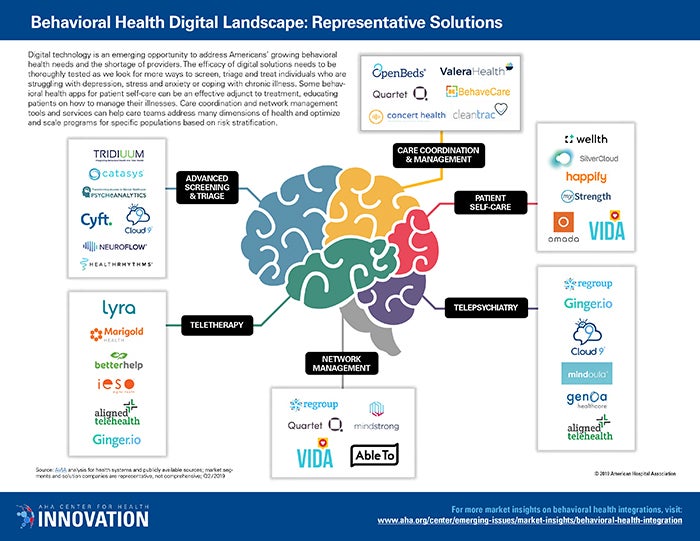

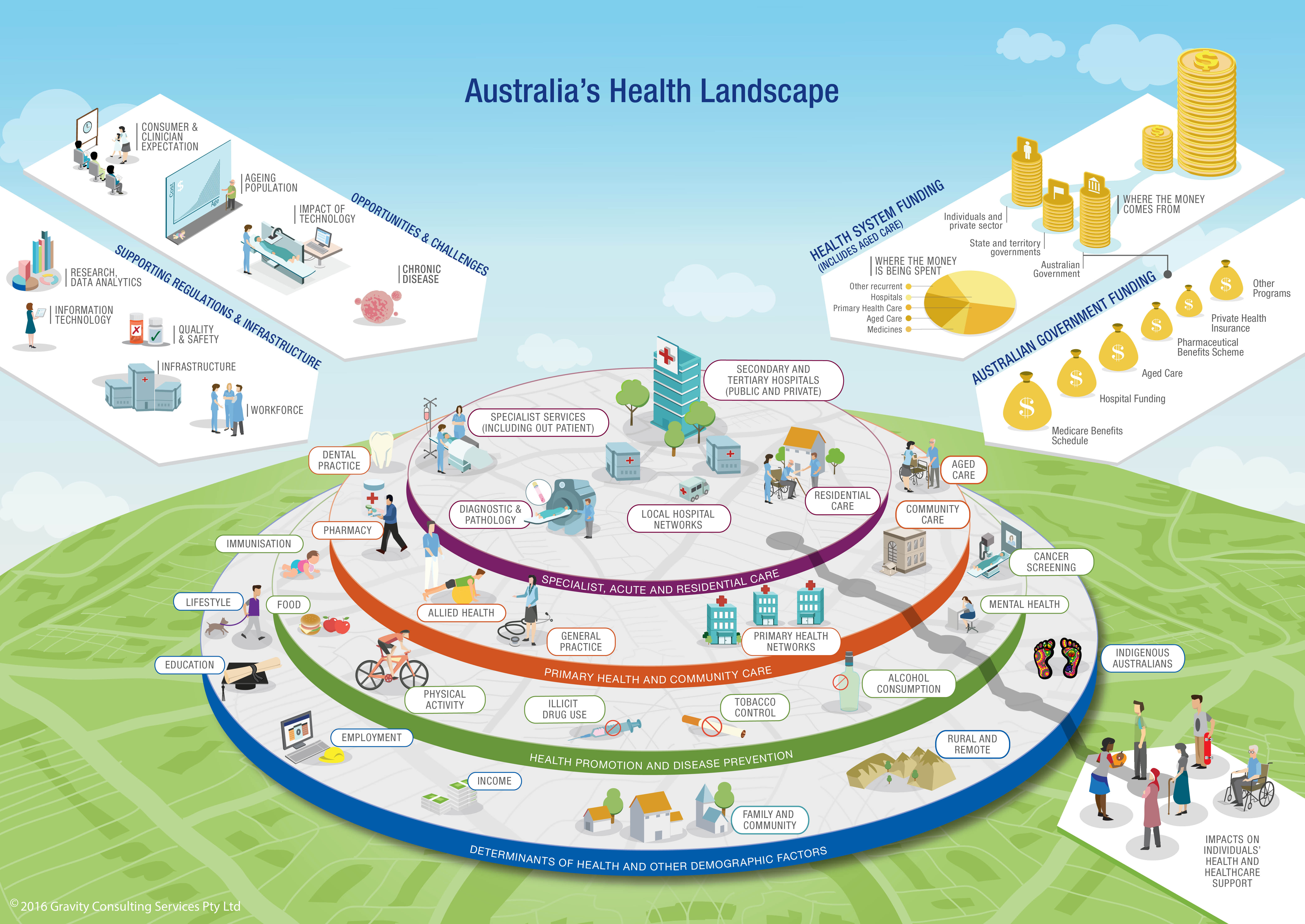

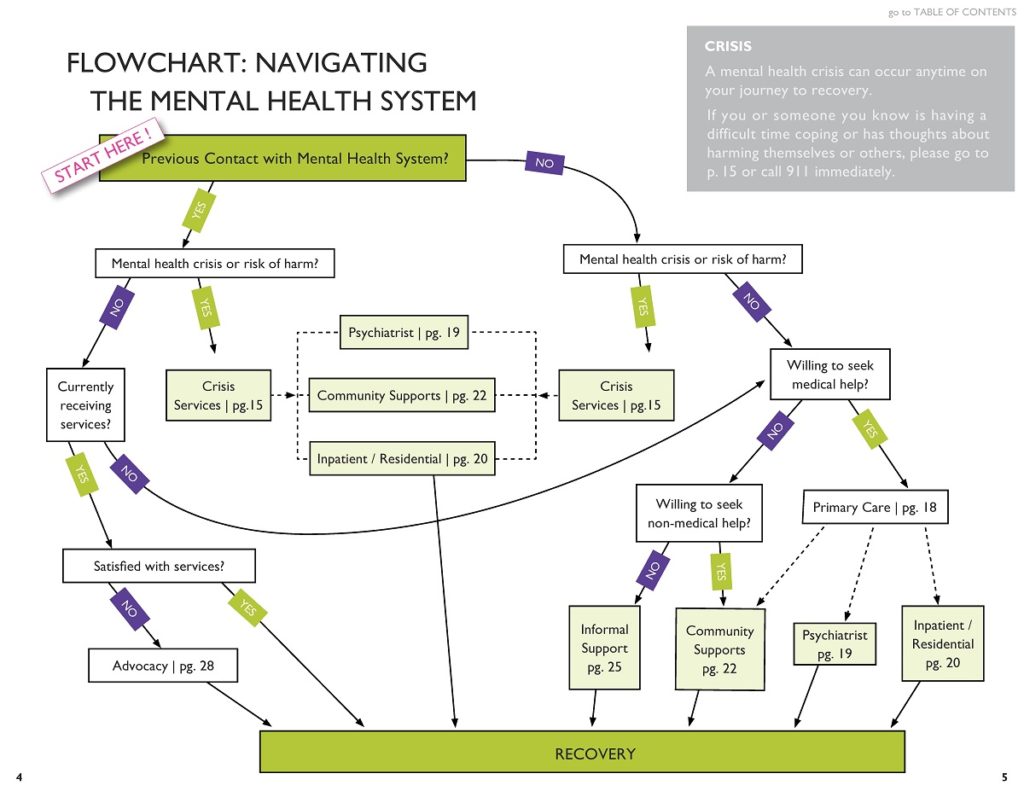
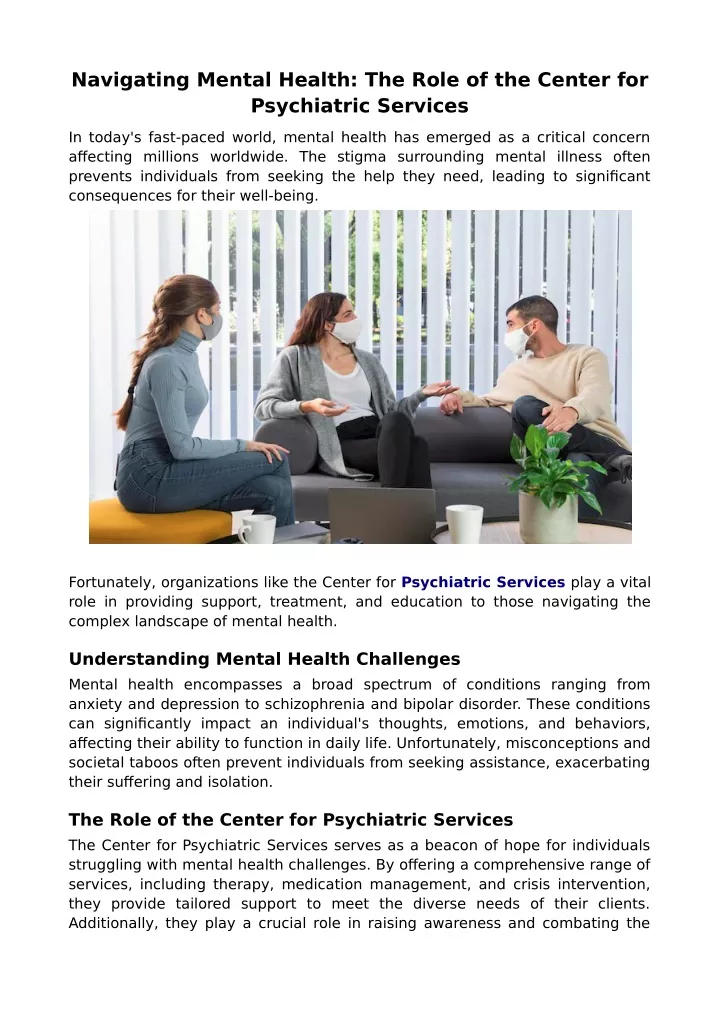
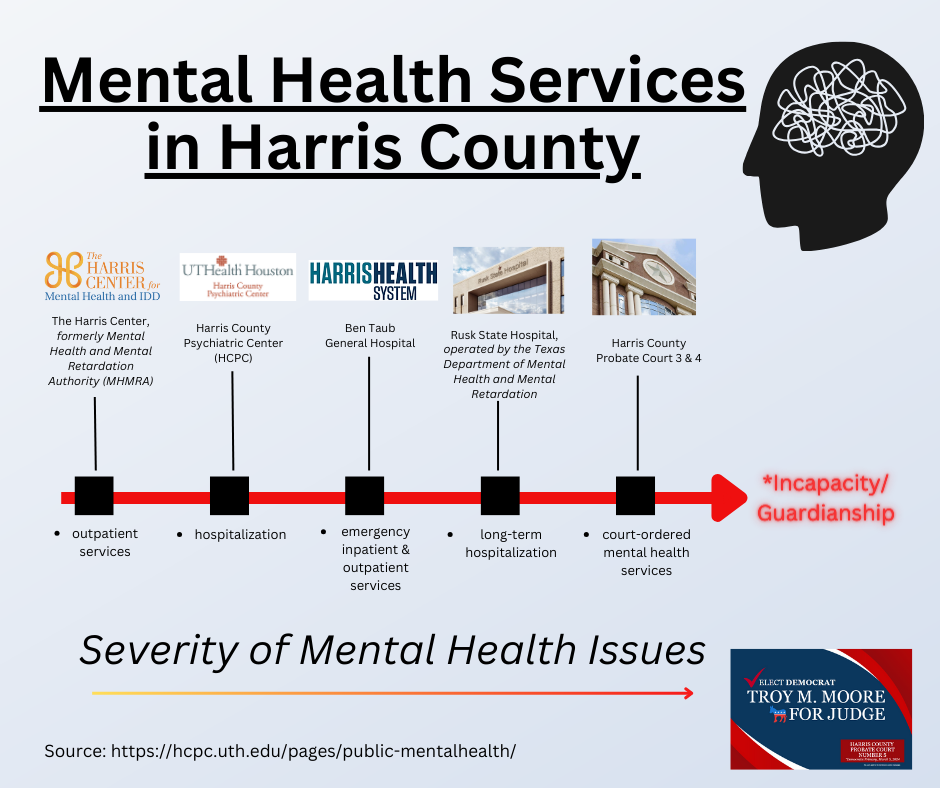

Closure
Thus, we hope this article has provided valuable insights into Navigating the Landscape of Mental Health: A Comprehensive Look at MAP Clinics. We appreciate your attention to our article. See you in our next article!